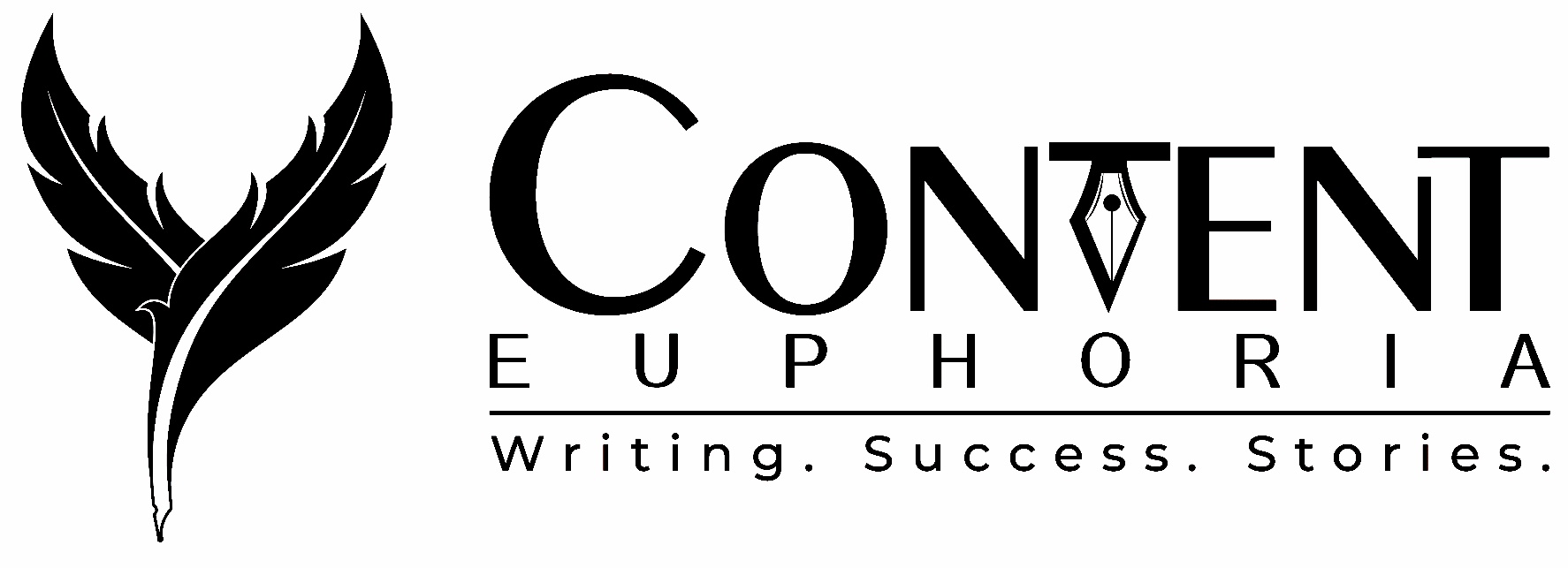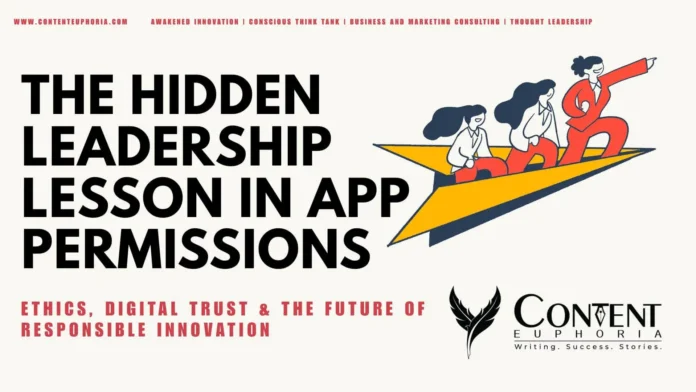Why App Permissions Reflect Leadership in a Digital Age
Every time we download an application, we are asked to grant access—our contacts, our location, our photos, our microphones. These requests, known as app permissions, may seem technical, but they reveal something deeper: the intersection of technology, trust, and leadership in the digital world.
GoodFirms’ recent research on app permissions highlights that 73% of users feel uncomfortable when apps ask for data permissions, and 58% believe such requests can compromise their data. While the study reflects the technical and security side of mobile applications, there is a larger conversation hidden within it. How permissions are asked, explained, and respected mirrors how leadership functions in the age of digital consent.
App permissions are not simply about technology. They are a test of ethics, responsibility, and transparency. When reframed through the lens of awakened leadership, they become a powerful metaphor for how organizations, governments, and innovators should handle trust, power, and human systems.
App Permissions and the Permission Paradox
Permissions serve a dual purpose. On one side, they enable functionality—an app cannot provide navigation without location access, nor offer video calls without camera and microphone use. On the other side, permissions can be exploited to overreach, collect unnecessary data, or even manipulate user behavior for commercial or political gain.
This permission paradox reflects a fundamental truth about leadership. Leaders, like apps, must request access to something deeply valuable: people’s trust, time, and energy. The question is not whether permission is needed; it is whether the permission is earned, respected, and transparently explained.
When permissions are granted without awareness, both users and citizens risk being exploited. When permissions are asked responsibly, they become foundations of digital trust and social contracts.
The Leadership Lesson in App Permissions
GoodFirms’ survey revealed that 46% of participants believe not all requested permissions are necessary for app functionality. This insight highlights a broader challenge: overreach. The leadership equivalent is when organizations demand more control, more data, or more influence than is truly required.
Transparency Builds Trust
Just as users want clarity on why an app needs access to their photos or location, stakeholders demand transparency from leaders. Hidden motives or ambiguous requests erode trust. In both cases, transparency is not a feature; it is the foundation of sustainable relationships.
Boundaries Protect Dignity
Not every access point needs to be granted. Social media apps asking for unrelated permissions reflect poor design ethics. Likewise, leadership without boundaries becomes invasive. Respecting boundaries, whether digital or organizational, preserves dignity and builds lasting credibility.
Shared Responsibility Creates Balance
Survey results showed that 65% of respondents believe data privacy is not solely the responsibility of developers, but also of users. This reflects a broader truth: leadership and systems are co-created. Just as users must consciously manage their permissions, citizens, employees, and organizations must share responsibility for collective security and trust.
From Data Privacy to Ethical Leadership
The risks of permissions are real. GoodFirms’ study identified the top threats of careless permissions: data leakage, malware attacks, insecure authentication, and phishing. These risks are technical, yet they point toward deeper systemic vulnerabilities.
In leadership terms, data privacy is not just about securing files; it is about securing trust. Digital trust is the new currency, and once lost, it cannot be easily restored. Ethical leadership, whether in technology companies, governments, or enterprises, must therefore commit to responsible innovation.
The Ethical Imperatives of App Permissions
-
Minimalism: Collect only what is essential.
-
Clarity: Explain why each access is needed.
-
Revocability: Allow users to change their minds without penalty.
-
Security: Ensure granted permissions are guarded, not exploited.
These imperatives are equally valid for leadership. Leaders must ask only what is needed, clarify purpose, allow autonomy, and safeguard trust. Anything less risks eroding the very systems they seek to strengthen.
Awakening Systems Through Responsible Innovation
The digital economy is not just about efficiency; it is about human systems. Today, there are over 8.9 million apps worldwide, each competing for attention and access. The competitive advantage of the future will not belong to the most aggressive collectors of data, but to those who balance innovation with responsibility.
Awakened leadership, pioneered by SunDeep Mehra, teaches us that innovation without ethics is unsustainable. Technology without clarity creates more noise than value. Systems must be awakened to prioritize human dignity over unchecked control. Responsible innovation means designing technologies and organizations that respect boundaries while empowering progress.
Content Euphoria’s Perspective: From Marketing to Thought Leadership
At Content Euphoria, our journey has evolved from digital marketing services to thought leadership, consulting, and advisory, rooted in awakened leadership. Today, in a world where the digital economy, business, and entrepreneurship are inseparably linked, we recognize that it is no longer enough to think in silos. Founders, CEOs, corporate leaders, industries, businesses, startups, and markets cannot afford fragmented perspectives. The future belongs to those who see the whole picture.
That is why Content Euphoria has evolved into a conscious think tank, combining awakened innovation, business consulting, and marketing consulting. We offer not just writing and digital marketing solutions, but also guidance, thought leadership, values, ethics, and AI implementation. Our mission is to help businesses, individuals, startups, enterprises, and the entire B2B ecosystem rise with clarity, ethics, and awakened intelligence to address real-world challenges.
We realized that it is impossible to create sustainable solutions by approaching business from only one perspective. Offering digital marketing without systems clarity, or consulting without ethics, or writing without strategic vision — all leave the picture incomplete. This is why Content Euphoria has evolved into thought leadership as a service, consulting and advisory as a service, alongside our established expertise in digital marketing and strategic writing. Every offering is now integrated into a larger philosophy of awakened leadership and holistic clarity.
It is within this context that our partnership with GoodFirms on the research around app permissions becomes meaningful.
By analyzing research like this through the lens of ethics and leadership, we aim to create clarity for businesses, innovators, and policymakers. Content is not just about visibility; it is about awakening systems to act with greater consciousness.
This partnership reflects our belief that research and thought leadership must not remain isolated as technical discussions but should inspire a higher dialogue on how leadership and technology can align for global impact.
A Call to Leaders: What App Permissions Teach Us About the Future
If there is one lesson hidden in the dialogue on app permissions, it is this: control without consent is unsustainable. Users today are more informed, more cautious, and more demanding of transparency. Similarly, citizens, customers, and employees are seeking awakened leaders who respect boundaries, explain purpose, and act responsibly.
The future of leadership lies not in maximizing permissions, but in maximizing trust. The digital economy will reward those who treat data as sacred, who embed ethics into innovation, and who awaken systems to function with clarity and responsibility.
Conclusion: Leadership Beyond Permissions
App permissions may appear technical, but they reveal a leadership blueprint. They ask us to reflect on how we, as organizations and leaders, handle access, consent, and responsibility.
The same lesson applies across industries, whether in data privacy, app development, or even startup culture. Leadership, not surface-level design or features, determines sustainability, as we’ve shared in our article Why Startup UX Design Won’t Save You, But Leadership Might.
GoodFirms’ research has shed light on user discomfort, risks, and expectations around data permissions. When viewed through the lens of awakened leadership, these insights become more than statistics; they become a guide for ethical leadership in the digital era.
The path forward is clear. Leaders must adopt the principles of transparency, boundary-respect, shared responsibility, and responsible innovation. In doing so, they will not only protect data privacy but also strengthen digital trust, the true foundation of future systems.
In a world where even apps require permission, the ultimate question for leaders is this: will you ask for trust responsibly, or will you risk losing it forever?


